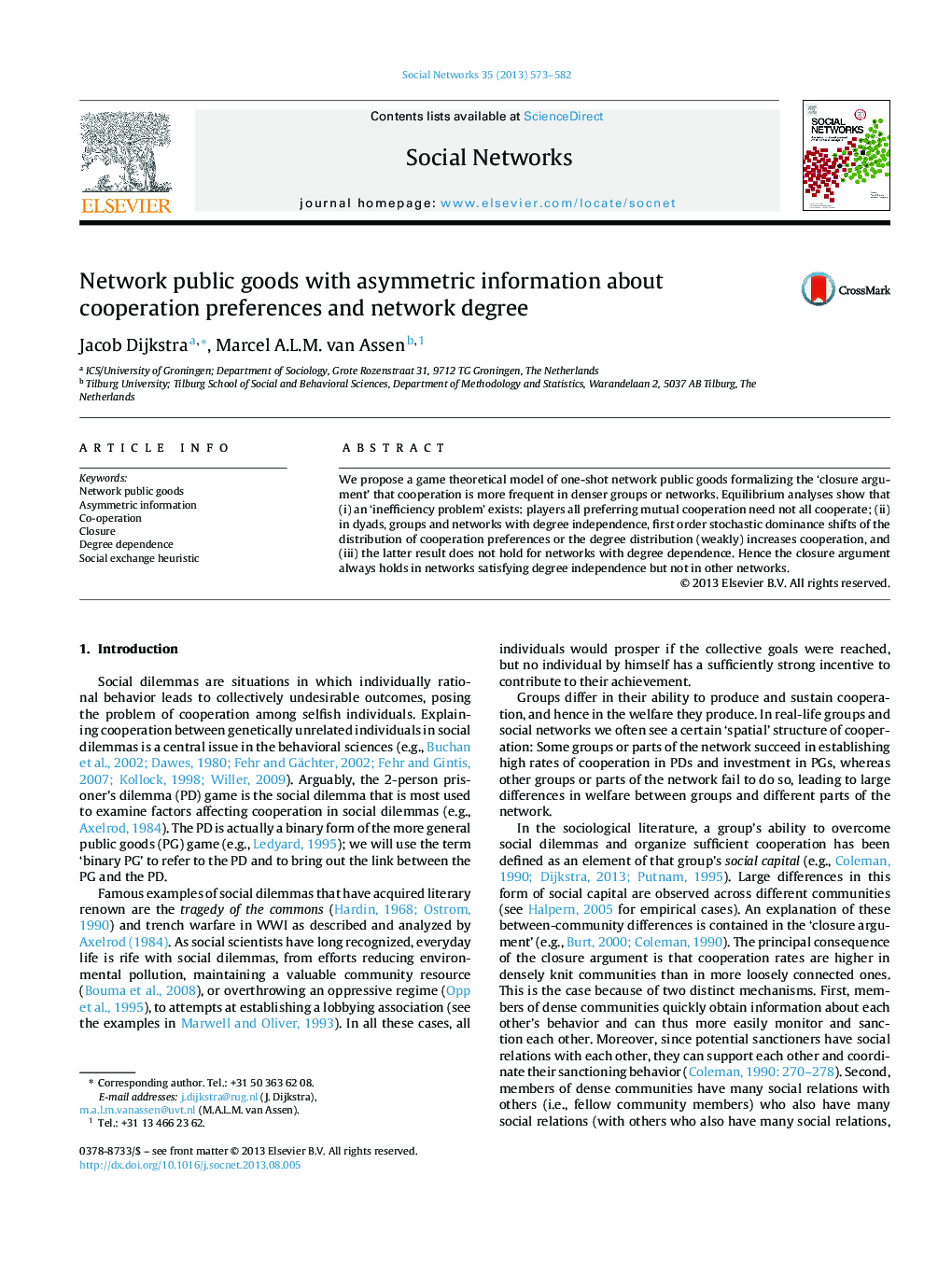| Article ID | Journal | Published Year | Pages | File Type |
|---|---|---|---|---|
| 1129451 | Social Networks | 2013 | 10 Pages |
Highlight•Network public goods with asymmetric preference and degree information are analyzed.•The social exchange heuristic is formalized and applied to groups and networks.•Under degree independence denser groups and networks cooperate (weakly) more.•Under degree dependence there is no monotone density-cooperation relation.•The ‘closure argument’ always holds for networks with degree independence.
We propose a game theoretical model of one-shot network public goods formalizing the ‘closure argument’ that cooperation is more frequent in denser groups or networks. Equilibrium analyses show that (i) an ‘inefficiency problem’ exists: players all preferring mutual cooperation need not all cooperate; (ii) in dyads, groups and networks with degree independence, first order stochastic dominance shifts of the distribution of cooperation preferences or the degree distribution (weakly) increases cooperation, and (iii) the latter result does not hold for networks with degree dependence. Hence the closure argument always holds in networks satisfying degree independence but not in other networks.
